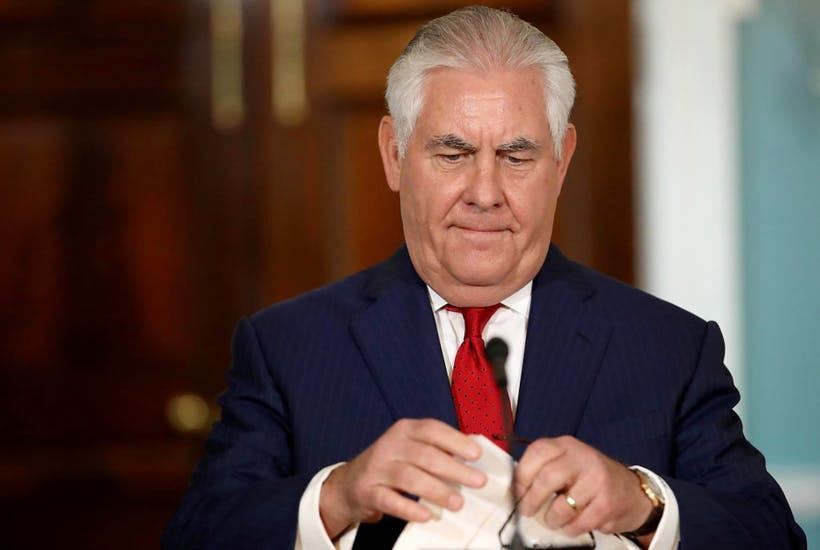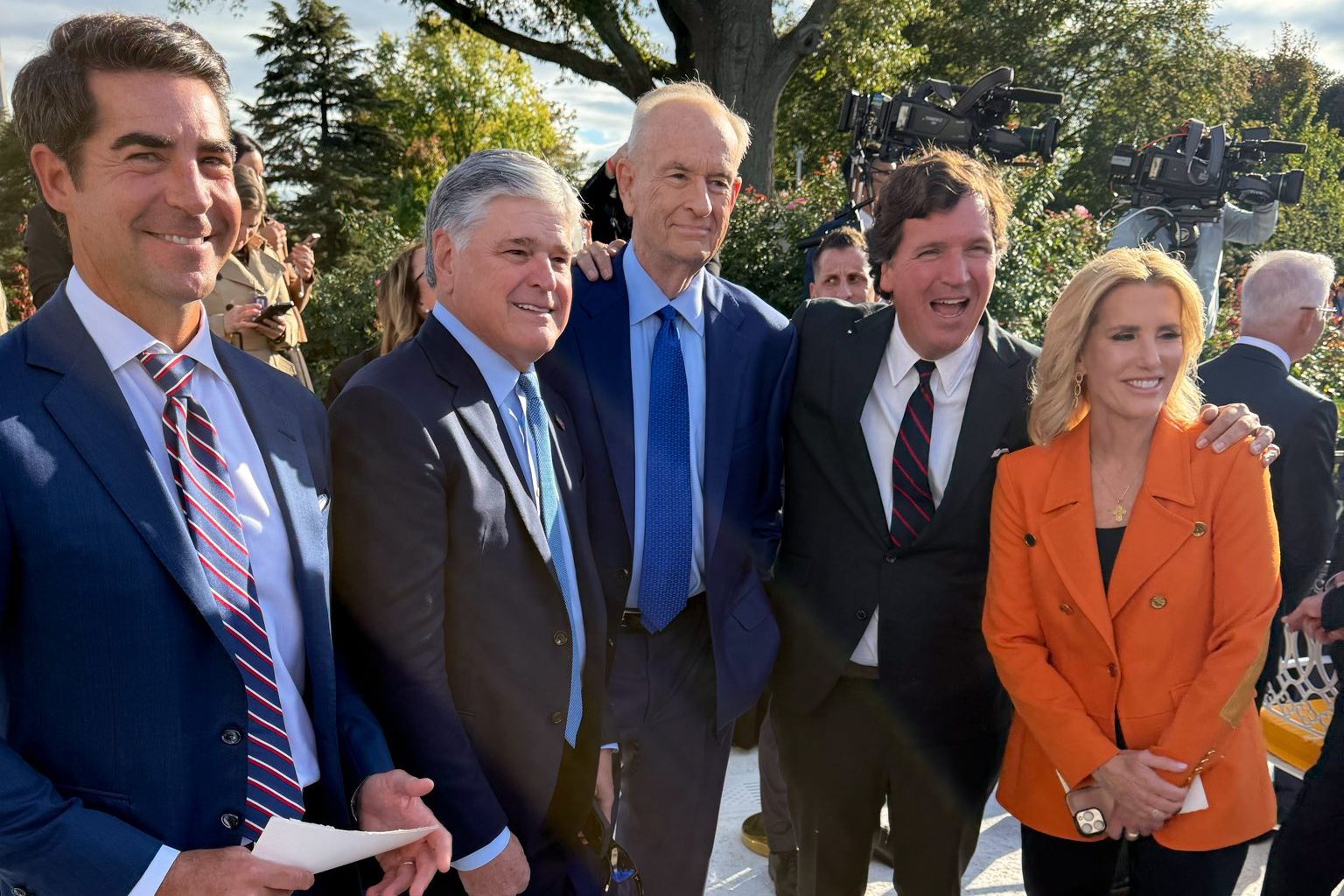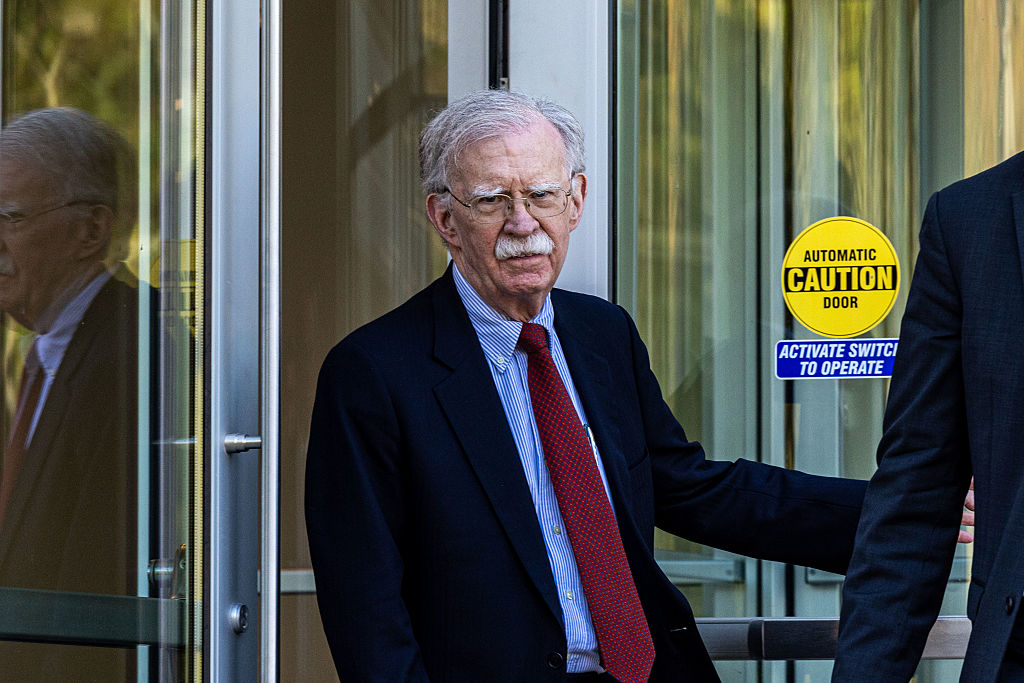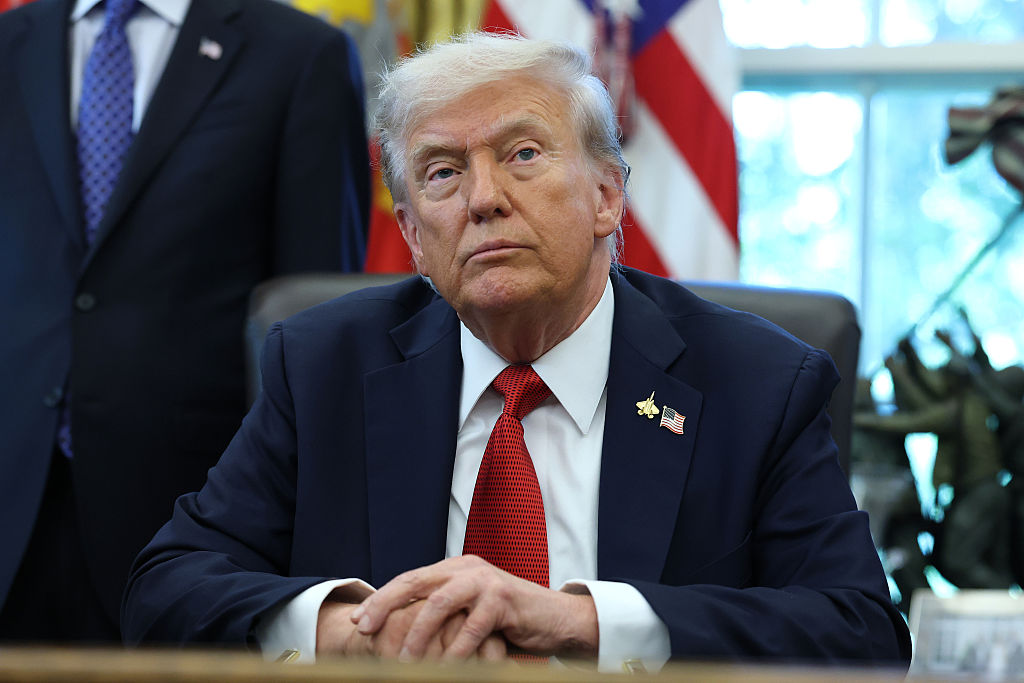Michael Barbaro, host of the New York Times podcast The Daily, opened Wednesday’s episode with the story of the sacking of the Secretary of State: ‘His relationship with President Trump was rocky from the start, but in the end, nobody was more surprised that Rex Tillerson was fired than Rex Tillerson’.
Really? If that’s true, then Tillerson was even more out of touch than anyone realised. American functionaries on the other side of the globe knew last month that a Rexit was imminent. I was in Seoul for the tail end of the Olympics and met with some U.S. Forces Korea officials. One spoke – almost in passing – as though Mike Pompeo was going to replace Rex Tillerson rather soon. He referred to Pompeo by name and his colleagues didn’t contradict him.
At the very least, Tillerson must have realised his days were numbered as soon as Donald Trump discovered last year that his top diplomat had called him a ‘f—ing moron’ in a meeting. An unconventional Secretary of State and an unconventional President, and the confirmation of their cleft was delivered in an unconventional way. NYT reporter Mark Landler revealed on the podcast that White House chief of staff John Kelly called Tillerson on March 9, when the Secretary of State was on a mission in Africa. ‘Kelly told him to cut short the trip and come home. And then he added without explanation, ‘You may be seeing a tweet’’. That tweet, from the President’s account, came just hours after Tillerson had landed in Washington. ‘Mike Pompeo, Director of the CIA, will become our new Secretary of State. He will do a fantastic job! Thank you to Rex Tillerson for his service! Gina Haspel will become the new Director of the CIA, and the first woman so chosen. Congratulations to all!’ Trump tweeted on March 13, at 8:44 a.m. I mention the exact time because, that afternoon, Tillerson pointedly mentioned the time Trump called him that day: ‘a little after noon’. State Department spokesman Steve Goldstein issued a statement in between the two events noting that the pair hadn’t spoken and that Tillerson didn’t know why he had been fired. The White House promptly terminated Goldstein as well.
Many news outlets ran the story under headlines that implied the Secretary was sacked for his strong statement the day before on the attempted murder, with the use of a nerve agent, of a former Russian spy in England. Tillerson declared that Russia was behind the act and ‘an irresponsible force of instability in the world, acting with open disregard for the sovereignty of other states and the life of their citizens’. ‘Rex Tillerson Gets Fired the Day After He Criticized Russia,’ the New Yorker’s headline stated. ‘Rex Tillerson: Secretary of state fired by Trump in Russia warning’, claimed the BBC, while Reuters went with ‘Russia hopes for constructive ties with US after Tillerson firing: Kremlin’. The media were aided by the opposition party. ‘Secretary Tillerson’s firing sets a profoundly disturbing precedent in which standing up for our allies against Russian aggression is grounds for a humiliating dismissal’, Democratic House leader Nancy Pelosi argued.
As Freddy Gray explained in these pages, the Secretary and the President had long been at loggerheads and ‘the firing almost certainly isn’t about Russia’, even if it looks like ‘as if Donald Trump wants the world to think he’s a Russian patsy’. It doesn’t seem to have occurred to pundits or politicians that they could have things the wrong way ’round: Tillerson might have made his striking remarks on Russia because he knew (or suspected) he was about to be canned.
Freddy theorizes that ‘the more likely cause of Tillerson’s departure is the most obvious: the sudden rapprochement with North Korea.’ Here, I hope he’s wrong. Kim Jong-un’s dictatorship might be the one issue on which Rex Tillerson saw some success.
The U.S. Forces Korea official I spoke with suggested that the Trump-Tillerson tag team on North Korea was inspired. ‘I think the President’s comments, the Secretary of Defense’s, the Secretary of State’s, the Vice President’s – I describe it like improvisational jazz. It’s not classic music, and if you’re not used to it, it seems very disoriented. But the whole is there,’ he said. ‘And so when the President says, ‘We’re not talking to these guys ever,’ and the Secretary of State goes, ‘Well, you know, exploratory talks might be in the road,’ ‘Well, no, we’re not,’ I think it all works together in a way that is helpful. Because I’ve been on the other end of this from North Korea, you know, they do that all the time. ‘We’re never talking to the Americans’, ‘We’re willing to talk to the Americans’. ‘We’re going to blow up Washington’, ‘We have no evil intent towards anybody’. So I think it works.’

























